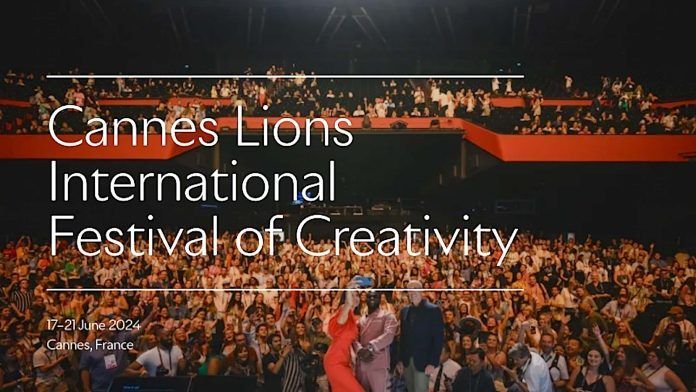Cannes Lions 2024: Adtechs, brands and marketers on what to expect

Next week the 71st global marketing powerhouse that is the Cannes Lions 2024 Festival of Creativity kicks off, with no shortage of big themes, issues and talking points to be addressed.
From artificial intelligence to grabbing peoples’ attention, and from diversity to sustainability, there is much discuss – and also to act on.
So what’s top of your agenda for the week ahead in the South of France?
Here, we have a taster from some of the world’s leading brands, marketers, adtechs and newsmakers on what’s top of their minds…
Anders Lithner, Co-Founder and CEO, Brand Metrics
“I expect Connected TV (CTV) to be high on the agenda at Cannes, as more brands start to appreciate its power.
“CTV combines the best of both worlds – the familiarity of TV advertising with the accountability and precision targeting of digital.
“It’s opening up TV to brands who thought they couldn’t afford it, and enabling those that always could to augment and fine-tune their linear TV campaigns.
“There’s still plenty of education needed before it reaches its full potential, but I expect a lot of learnings to come out of Cannes.”
Pete Wallace, General Manager, EMEA, GumGum
“We need to drill down on solutions to replace the soon-to-be-gone third-party cookie.
“Yes, Google continues to stall on its promises, but the cookie will be deprecated at some point, and we need to plan for that.
“Indeed, however much Google prevaricates, we’re already in a place of heavily deprecated addressability, and we owe it to consumers to operate in a way that puts their privacy first.
“We have been arguing for contextual since way before cookie deprecation was a thing, and in an era where other signals of interest and intent are being dimmed to the point of invisibility, it has more to offer than ever, offering advertisers a way to target consumers with relevant messages in a privacy-first way.”
Gareth Holmes, VP of Commercial Strategy and Media, SeenThis
“Pre-Cannes, I’ve been thinking a lot about moving images. Humans have an evolutionary predisposition to notice movement, from the days when we were predators and prey, and it is one we are able to leverage in advertising.
“Motion captures attention through an automatic mechanism called ‘attentional capture’, and that is why we can’t not look at videos when they are presented on screen – though we can easily ignore static images.
“So as we all head to the warm south of France, perhaps we should remember that we too are humans, and if we want to ensure our creative is viewed, we need moving pictures to capture the eye, and not outsource the process to companies who say, “but the ad unit was in view”.
“It is time to progress beyond static and embrace the science – nothing catches the human eye better than a moving object.
Sara Vincent, Managing Director UK, Utiq
“The two most important topics in digital advertising should be consent and privacy.
“If you are not thinking about how to incorporate these two foundational areas into your digital advertising, then you risk your future business success.
“Properly consented users are more engaged users, and more engaged users can bring better outcomes for advertisers and more time on site for publishers, which builds brand trust and loyalty.
“Let’s start to be more open and transparent with people, explaining the value exchange and respect for privacy that takes place when they agree to share their data in return for more responsible advertising.
“We need to secure people’s consent to let brands engage with them on their own terms, and only for as long as they wish that consent to remain in force.
“And, with 40% of the addressable market currently third party cookieless, we are not talking about a future problem. This is an issue today.”
Amir Rasekh, Managing Director, Nectar360
“I believe 2024 will be the year retail media dominates the conversation at Cannes.
“It’s a market that has been building for more than 10 years now, but has only recently gained the prominence it deserves and is expected to make up one-fifth of worldwide digital ad spend this year.
“Why? Well, it’s such a powerful way to connect customers with their favourite brands.
“Retailers have a depth and breadth of customer insight, based on what customers actually buy, and retail media enables brands to engage customers and potential customers with personalised advertising however they choose to shop with a retailer.
“And as brands gain a better understanding of how retail media works, it has evolved from a lower-funnel, tactical play, into fully-fledged 360-degree activations across the full customer journey, both online and in-store.”
Fern Potter, SVP Strategy and Partnerships, Multilocal
“Responsible media is hot, and quite rightly so. Increasingly, we are seeing words turned into action, strategy into activation and purpose into programmatic.
“More than ever, our conversations are focussed around inclusivity, carbon reduction and consent. As they should be.
“There is a lot to be done on the data to get us there; it’s completeness, efficacy and source of truth, to allow for the strategic vision of advertisers to be translated into activation of advertising campaigns.
“We must look forwards and outwards to improve the way novel technology can be leveraged to answer to our client and consumer needs, which is thrilling, as there is enormous potential to deliver responsible marketing initiatives with the suite of ad tech solutions available today – we need changemakers to employ them.
“At Multilocal, we find audiences and curate them based on our customers’ appetite for quality and content, delivering performance at scale by accessing a universe of supply in every market globally, with sustainability as standard.”
Sam Yates, Chief Solutions Officer, AI Studios, Jellyfish
AI will no doubt be to the fore in Cannes, especially given Apple’s ChatGPT announcement.
“Clearly, AI has a big future in all aspects of advertising, but I would like to see more discussion at the festival around its part in the creative process.
“There has been much scaremongering about AI taking people’s jobs, but in the creative sphere, I believe AI has a big part to play in helping creatives be more, well, creative.
“On one level, AI can obviously help with the research process and the analysis of huge amounts of data.
“But it can also help in automating the process of taking a central creative idea and repurposing it in dozens, hundreds, even thousands of different ways to satisfy the needs of different channels, platforms and target audiences.
“That will save creatives’ time and free them to do what they do best – create.
“AI won’t automate the processes entirely, but I hope creatives attending this year’s Cannes – and let’s not forget that its full name is The Cannes Lions International Festival of Creativity – will leave feeling less worried and more enthused about how AI can help in the creative process.”
Also published in: Mediashotz



